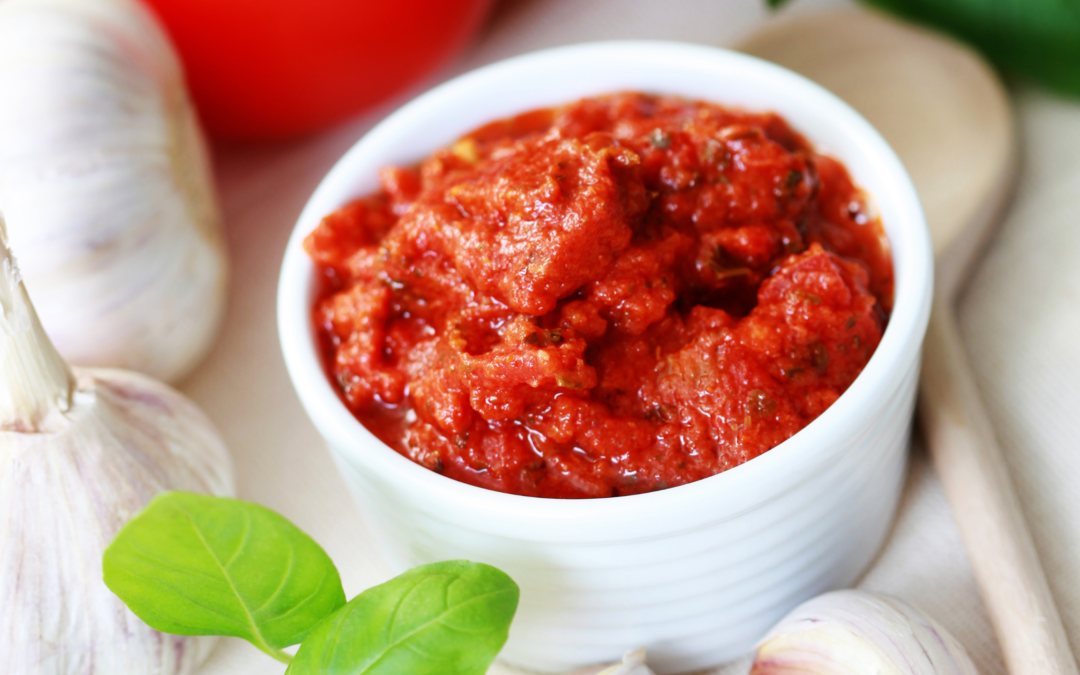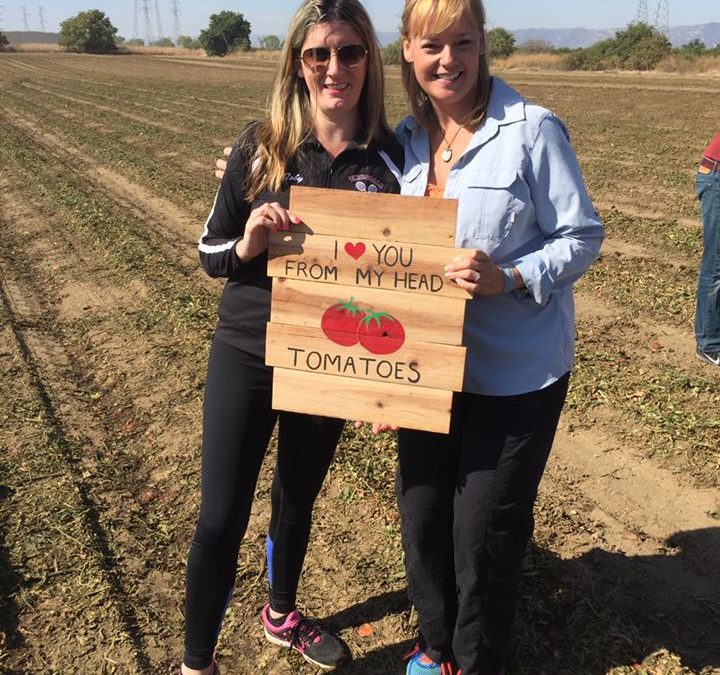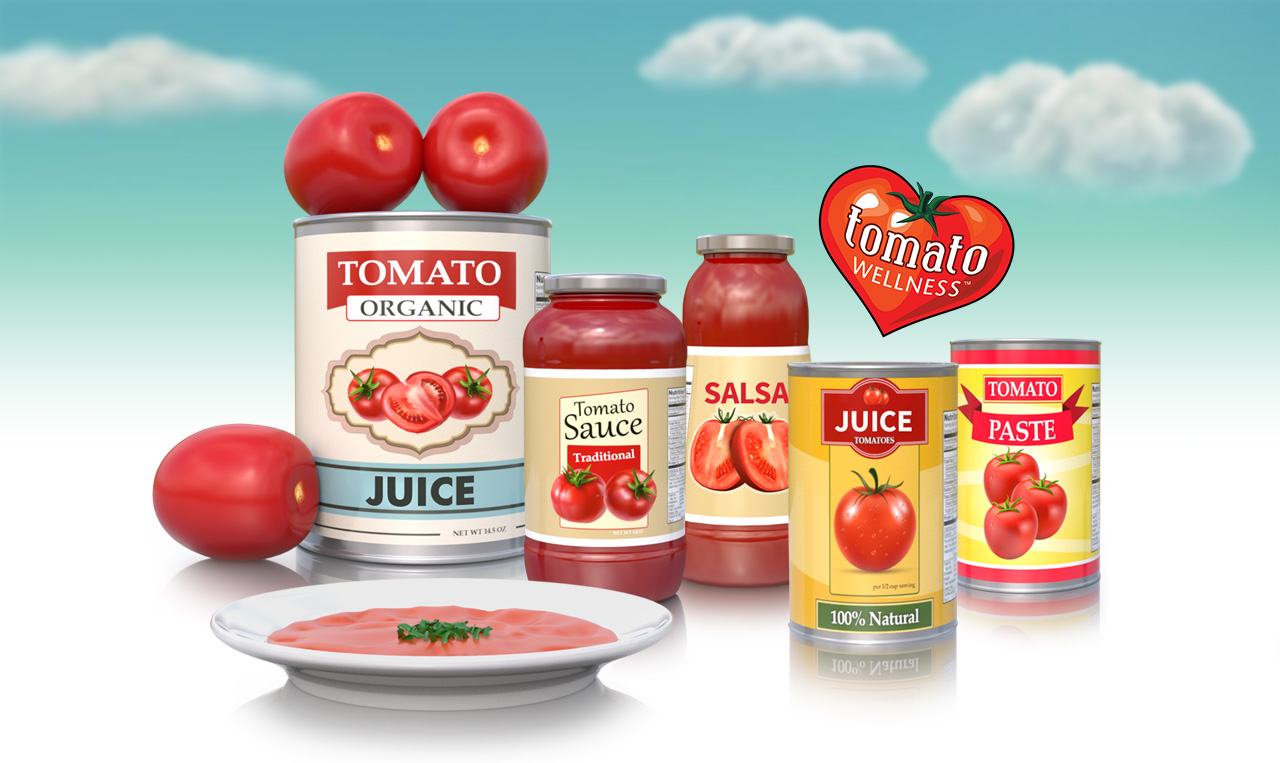
by Tomato Wellness | Mar 2, 2021 | Health, News
Can consuming tomato products reduce the risk of certain diseases and contribute to total/cause-specific mortality? In a study written by Cambridge University Press, researchers aimed to determine the long-term effects of tomato and lycopene consumption. In order to do so, they began by assessing the changes in cardio-metabolic factors, such as obesity, hypertension, and blood sugar levels. The participants of the study included 23,935 individuals who were, on average, 47 years old and approximately half of them were men. The results of the study showed that tomato intake and lycopene consumption were inversely related with the total mortality, cause-specific mortality, congenital heart disease, and cerebrovascular mortality. However, these results were independent of certain factors, such as anthropometric, clinical, and nutritional parameters. Surprisingly, lycopene consumption and risk of certain diseases were not affected by age and obesity. Overall, the results suggest that tomato consumption can positively impact the health of individuals.
Although further evidence-based studies need to be conducted to confirm the impact of lycopene and tomato intake, we know that tomato products can reduce the risk of certain diseases. Canned, cooked, and fresh tomatoes all contain lycopene, which has been shown to improve overall health. In addition to lycopene, tomatoes are rich in vitamin A, vitamin C, fiber, potassium, iron, and other antioxidants. These nutrients are critical for both short and long term health, so it’s important to incorporate tomato products into your meals. Tomato is a versatile ingredient and can be paired well with just about any food — pasta, pizza, sandwiches, salads, and more! So, go ahead and dive into the goodness of canned tomatoes for yourself!
For other tomato news, check out:
Top 11 Reasons to Go Red with Tomato Products
Can Tomatoes Help Your Kid Eat More Veggies?
What is Lycopene?

by Tomato Wellness | Feb 22, 2021 | Media Recipe, Recipes
Tired of the same old spaghetti and meatballs every week? Shake up your pasta routine with this quick and easy Puttanesca Pasta. Puttanesca is a classic Italian sauce consisting of anchovies, tomatoes, olives, and capers, creating the perfect balance of salty and savory. Canned tomatoes are the star of this dish, providing bright color and flavor, as well as being a nutrition powerhouse. Tomatoes are packed with lycopene, a cancer-fighting compound, as well as vitamin C, iron, and potassium. Plus, canned tomatoes actually have a higher lycopene content than fresh, as the cooking and canning process enhances the availability of the nutrient, making it easier for your body to absorb.
You can feel good about serving this delectable Mediterranean-inspired meal to your family, and they will delight in the complex flavors. To make this meal extra special, serve with a simple side salad dressed with olive oil and balsamic vinegar. Whether you’re enjoying Puttanesca Pasta for a Sunday family dinner or a simple weeknight meal for one, you’ll be satisfied.
For the full recipe, visit our friends at Pacific Coast Producers.
For other delicious recipes, check out some of our favorites:
Chipotle Tomato Rice POWER Bowl
Swiss Chard Pecan Lasagna
Pan Seared Pork Chops with Bourbon Peach Compote

by Tomato Wellness | Feb 20, 2021 | Health, News
How does tomato consumption affect prostate cancer in men? The most common type of cancer among Western men is prostate cancer, but some studies suggest that men who consume more tomato products can reduce the risk of prostate cancer. In a recent Adventist Health Study, researchers wanted to determine the correlation between tomato intake and prostate cancer. The participants of the study included 27,934 Adventist men who did not have prostate cancer in the beginning of the study. After a 7.9 year follow-up, there were 1,226 men who ended up having prostate cancer and 355 of these men were greatly affected, as their cancer was aggressive. The results of the study showed that those who consumed 64-71 grams of canned and cooked tomato products per day had a reduced risk of prostate cancer. Though other factors need to be taken into consideration when making this assumption, there seems to be a significant inverse relationship between lycopene consumption and prostate cancer.
Prostate cancer is a serious issue among men, so it’s important to spread awareness about this topic and discover preventive measures. More than 1.3 million men are diagnosed with prostate cancer each year, and numerous studies suggest that lycopene has cancer-fighting properties. Lycopene can be found in tomato products, which contain anti-carcinogenic compounds, such as vitamin A, vitamin C, and fiber. With early detection and higher intake of fruits and vegetables, prostate cancer can be reduced. Thus, it’s important to ensure that you are eating healthy, well-balanced meals and staying active on a daily basis. With so many benefits surrounding canned tomatoes, go ahead and incorporate more tomato products into your daily diet to ensure maximum health!
For other tomato news, check out:
Top 11 Reasons to Go Red with Tomato Products
Can Tomatoes Help Your Kid Eat More Veggies?
What is Lycopene?

by Tomato Wellness | Feb 8, 2021 | Food and Nutrition, Tomato Products
 Meet Toby Amidor, who is the Tomato Wellness Registered Dietitian of the month for February 2021! You probably already know her as she’s EVERYWHERE! With over 20 years of experience in the food and nutrition industry, Toby Amidor, MS, RD, CDN, FAND is a Wall Street Journal best-selling cookbook author, spokesperson, speaker, leading dietitian, and recipe developer who believes that healthy and wholesome can also be appetizing and delicious. We have known and worked with her for many years, and she actually was on the very first RD Tomato Tour we helped to coordinate with our friends at Pacific Coast Producers. Having experienced the tomato harvest for herself, and being such a credible and widely respected expert on health, food safety and nutrition, we often turn to her to help explain the benefits of tomato products and to bust any negative myths about canned foods. Enjoy below some of her words on canned tomatoes, and a few of her delicious recipes featuring canned tomatoes!
Meet Toby Amidor, who is the Tomato Wellness Registered Dietitian of the month for February 2021! You probably already know her as she’s EVERYWHERE! With over 20 years of experience in the food and nutrition industry, Toby Amidor, MS, RD, CDN, FAND is a Wall Street Journal best-selling cookbook author, spokesperson, speaker, leading dietitian, and recipe developer who believes that healthy and wholesome can also be appetizing and delicious. We have known and worked with her for many years, and she actually was on the very first RD Tomato Tour we helped to coordinate with our friends at Pacific Coast Producers. Having experienced the tomato harvest for herself, and being such a credible and widely respected expert on health, food safety and nutrition, we often turn to her to help explain the benefits of tomato products and to bust any negative myths about canned foods. Enjoy below some of her words on canned tomatoes, and a few of her delicious recipes featuring canned tomatoes!

Toby Amidor – As a registered dietitian, part of my role is to debunk nutrition myths and provide a science-based reason why they are myths. As I am a huge fan of canned tomatoes, one of my biggest pet peeves is when folks and media outlets trash canned foods without really knowing all the facts. Please stop trashing canned foods, especially canned tomatoes, and understand the agricultural facts and science. Click here for four common myths about canned foods debunked, plus a ton of ways to use canned tomatoes in your dishes.
Many believe that the foods being canned are rejected foods but that couldn’t be further from the truth. Fruits and vegetables, including canned tomatoes, are specifically bred to be canned for their stronger flavor and for their firmness so they can hold up to being harvested by machines (this doesn’t mean GMOs are used). Over the last 40 to 50 years, scientists have gotten very good at breeding tomatoes to get the perfect blend of flavor and structure. The tomatoes used for canned tomato products are machine picked, not handpicked so they need to be sturdy. After the tomatoes are handpicked, they are cooked to preserve them. No additional additives or preservatives are needed. .
Of course, fresh is certainly a healthy option too. There is a time and place to use both fresh and canned in a healthy eating plan. If the fruit or vegetable is in season, enjoy it as a snack or in a sandwich. However, if you’re cooking or the fruit or vegetable isn’t in season, turn to canned (like canned tomatoes) for the best and most consistent flavor.

Health Benefits of Canned Tomatoes
Tomatoes and tomato products contain a wide variety of nutrients, including vitamin C, Vitamin E, potassium, and fiber. They’re also loaded with powerful antioxidants, such as beta-carotene and lycopene. Tomatoes are actually cooked during the canning process, and lycopene has actually been found to be more absorbable by the body in its cooked form. Therefore, canned tomatoes actually have more of the cancer-fighting lycopene than the raw variety.
In The Kitchen
Canned tomatoes are a permanent staple in my pantry. You can find them in many different forms, such as whole peeled, diced, stewed, crushed in puree, tomato paste and tomato puree. Here are some of my favorite ways to use canned tomatoes:
- Crushed tomatoes are a great base for a creamy tomato soup.
- Diced tomatoes are a nice addition to chili and curry.
- Whole crushed or stewed tomatoes can be used to make a homemade pasta sauce.
- Add tomato paste and/or diced tomatoes to homemade soups.
- Use fire-roasted crushed tomatoes to make a salsa for chicken and fish.
For more recipes featuring canned tomato products, check out some of Toby’s favorites:
Easy Eggplant Parmesan
Warming Tomato Soup with Peas and Carrots
Chicken Parm Casserole

by Tomato Wellness | Jan 26, 2021 | Media Recipe, Recipes
Looking for an easy appetizer that’s bursting with flavor? Try these Baked Chicken Wings with Tomato, Ginger, and Sweet Onion Chutney for a unique take on the classic chicken wing. This recipe for baked chicken wings couldn’t be simpler and makes a perfect game day appetizer or party snack that’s sure to please everyone. Simple ingredients like garlic, sugar, vinegar, and tomatoes make it easy to prepare this Indian-inspired dish without breaking your budget or needing to buy any fancy products. Plus, this recipe makes some extra sauce that you can save for another meal. Try using it as a topping for grilled pork or baked fish for an easy protein-packed dinner.
The bright flavor of canned diced tomatoes forms the base for a tasty sweet and sour sauce, while providing plenty of nutrients. Canned tomatoes are especially high in lycopene, a compound that gives them their characteristic red color and has powerful antioxidant properties. Although further evidence-based studies need to be conducted to confirm the impact of lycopene and tomato intake, we know that tomato products can reduce the risk of certain diseases. Canned, cooked, and fresh tomatoes all contain lycopene, which has been shown to improve overall health. In addition to lycopene, tomatoes are rich in vitamin A, vitamin C, fiber, potassium, iron, and other antioxidants. These nutrients are critical for both short and long term health, so it’s important to incorporate tomato products into your meals.
For the full recipe, visit our friends at Pacific Coast Producers.
If you’re looking for other delicious recipes, check out some of our favorites:
Easy Chicken Curry
Swiss Chard Pecan Lasagna
Pizza Stuffed Chicken









Recent Comments